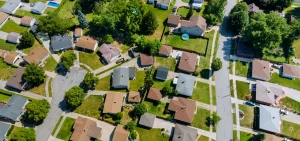News
Democratic state lawmakers say the focus should be on Ohio’s property taxes post-election
By: Sarah Donaldson | Statehouse News Bureau
Posted on:
COLUMBUS, Ohio (Statehouse News Bureau) — With more than a dozen bills floating around to address the intricate issue, Democratic lawmakers are arguing inaction on property taxes at the Ohio Statehouse is a problem of Republican priorities.

Most of the bipartisan tax bills have already had some hearings, so House Minority Leader Rep. Allison Russo (D-Upper Arlington) said the legislature wouldn’t be starting from scratch if they do it during lame duck.
“We do have time,” Russo said Tuesday. “Not doing this is a choice. We have the time to get it done so that people actually feel that relief as soon as possible.”
Some of the priority legislation she pointed to included a bill that puts a freeze on property taxes for some low-income seniors (House Bill 263) and a bill that creates a circuit breaker for property taxes that exceed 5% of a person’s income (Senate Bill 271). Although the biennial state budget included a change to the property tax homestead exemption, lawmakers have proposed changes further increasing that exemption, too.
With valuations rising fast, homeowners across Ohio are feeling a financial squeeze, lawmakers have said. The issue doesn’t just affect the people who own property, said Rep. Beryl Brown Piccolantonio (D-Gahanna).
“A lot of people don’t think about people who pay rent as being impacted by property taxes, but whoever owns that property is going to shift that cost somewhere and so it impacts our renters as well,” Brown Piccolantonio said.
Any bills that do not make it to Gov. Mike DeWine’s desk by December would need to be reintroduced next year. Even if nothing gets done during lame duck, Russo said the Democratic caucuses will continue to call attention to the issue in 2025.

